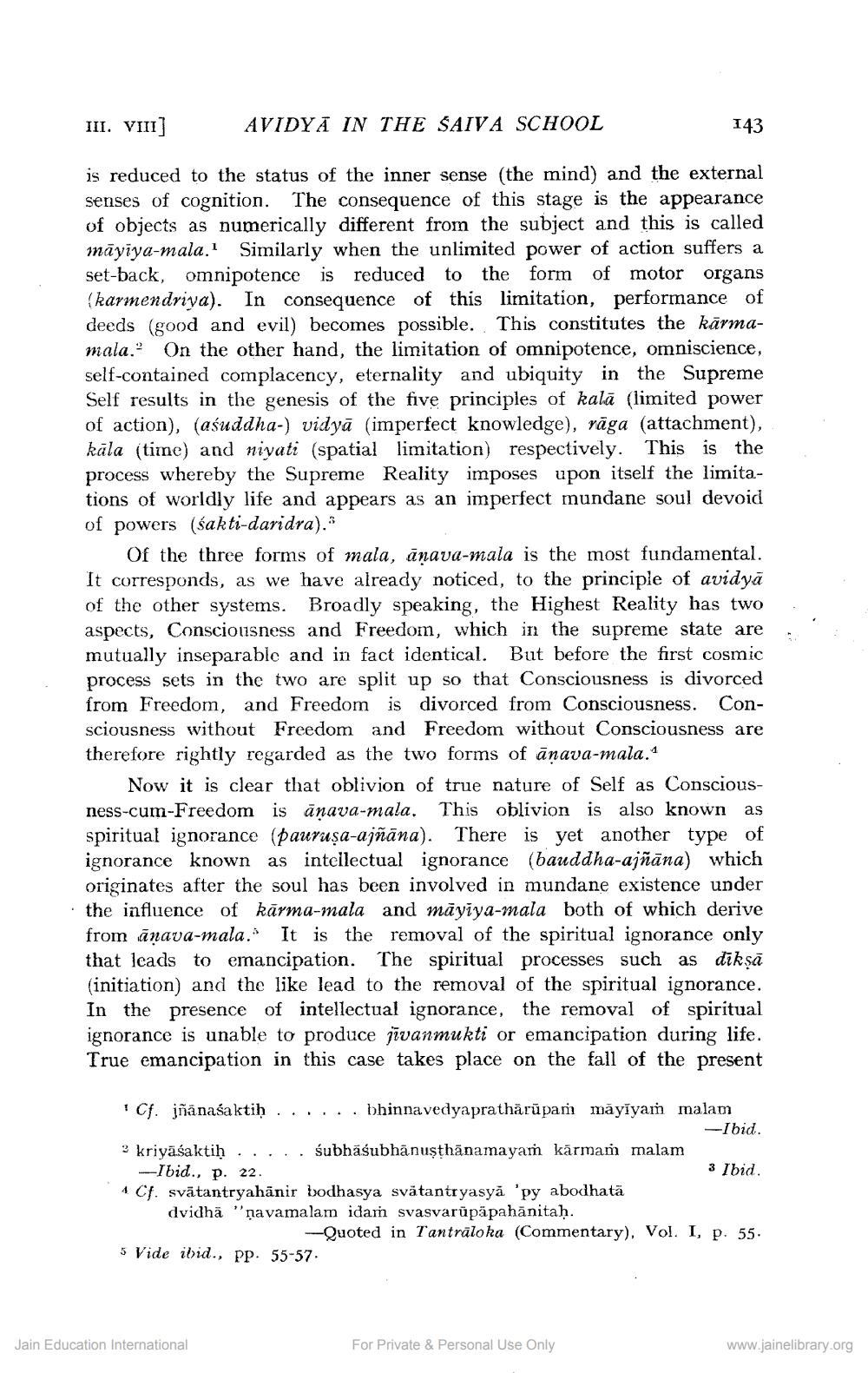________________
III. VIII]
AVIDYA IN THE SAIVA SCHOOL
is reduced to the status of the inner sense (the mind) and the external senses of cognition. The consequence of this stage is the appearance of objects as numerically different from the subject and this is called mayiya-mala. Similarly when the unlimited power of action suffers a set-back, omnipotence is reduced to the form of motor organs (karmendriya). In consequence of this limitation, performance of deeds (good and evil) becomes possible. This constitutes the karmamala. On the other hand, the limitation of omnipotence, omniscience, self-contained complacency, eternality and ubiquity in the Supreme Self results in the genesis of the five principles of kalā (limited power of action), (aśuddha-) vidyā (imperfect knowledge), rāga (attachment), kāla (time) and niyati (spatial limitation) respectively. This is the process whereby the Supreme Reality imposes upon itself the limitations of worldly life and appears as an imperfect mundane soul devoid of powers (śakti-daridra).
Of the three forms of mala, anava-mala is the most fundamental. It corresponds, as we have already noticed, to the principle of avidya of the other systems. Broadly speaking, the Highest Reality has two aspects, Consciousness and Freedom, which in the supreme state are mutually inseparable and in fact identical. But before the first cosmic process sets in the two are split up so that Consciousness is divorced from Freedom, and Freedom is divorced from Consciousness. Consciousness without Freedom and Freedom without Consciousness are therefore rightly regarded as the two forms of āṇava-mala.1
as
Now it is clear that oblivion of true nature of Self as Consciousness-cum-Freedom is anava-mala. This oblivion is also known spiritual ignorance (pauruṣa-ajñāna). There is yet another type of ignorance known as intellectual ignorance (bauddha-ajñāna) which originates after the soul has been involved in mundane existence under the influence of karma-mala and mayiya-mala both of which derive from aṇava-mala. It is the removal of the spiritual ignorance only that leads to emancipation. The spiritual processes such as dīkṣā (initiation) and the like lead to the removal of the spiritual ignorance. In the presence of intellectual ignorance, the removal of spiritual ignorance is unable to produce jivanmukti or emancipation during life. True emancipation in this case takes place on the fall of the present
Cf. jñānasaktiḥ
2 kriyāśaktiḥ -Ibid., p.
22.
4 Cf. svätantryahänir bodhasya svätantryasya 'py abodhata dvidha "navamalam idam svasvarupäpahanitaḥ.
5 Vide ibid., pp. 55-57.
Jain Education International
143
bhinnavedyapratharupaṁ mayiyam malam
-Ibid.
subhäśubhanuṣṭhānamayam kärmaṁ malam
For Private & Personal Use Only
3 Ibid.
-Quoted in Tantraloka (Commentary), Vol. I, p. 55.
www.jainelibrary.org




